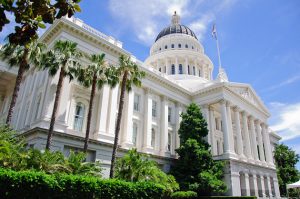 Some big wins for California (and therefore national) climate policy last night:
Some big wins for California (and therefore national) climate policy last night:
- Lt. Governor Gavin Newsom is elected governor, which means the state will continue its climate leadership on various policy fronts
- Prop. 6 loses, which would have repealed the gas tax increase and meant less funding for transit going forward
- Prop. 1 wins, which could provide more money for affordable housing in infill areas, reducing driving miles as a result
- The Democrats win the U.S. House of Representatives, which has a host of implications:
- Oversight of the U.S. Departments of Energy, Interior, and Transportation, plus E.P.A., which have all issued various regulations that hurt climate goals in the state
- Potentially more funding in future budget bills for crucial transit infrastructure, including high speed rail
- Potentially more funding and fiscal support for clean tech, like renewables, energy storage and electric vehicles, depending on how budget negotiations proceed
- Oregon Governor Kate Brown wins re-election, which means that state is well-positioned to adopt cap-and-trade next year, making it the first U.S. state to link to California’s program and potentially creating a multi-state building block for an eventual national carbon trading program
And on the housing front, Governor-elect Newsom has set ambitious goals for building more homes in the state, which if done in infill areas could bring crucial climate and air pollution benefits from reduced driving per capita. Pro-housing “YIMBY” candidates also bolstered their ranks in state government, with the election of former Obama campaign staffer Buffy Wicks to the Berkeley Assembly district.
Setbacks nationally (beyond continued Republican gains in the U.S. Senate) included the defeat of some state ballot initiatives, including a carbon tax in Washington, an anti-fracking measure in Colorado, and a renewable portfolio initiative in Arizona — though Nevada voters did embrace a 50% renewable target by 2030 at their polls.
All in all, a positive night for climate policy in California and beyond.


